Keep builds green at scale
Learn More


Whether you are a team of 10 or 1000, our queue is highly configurable and built to manage merges at scale. Configure fast forwarding, auto-rebasing custom validations.

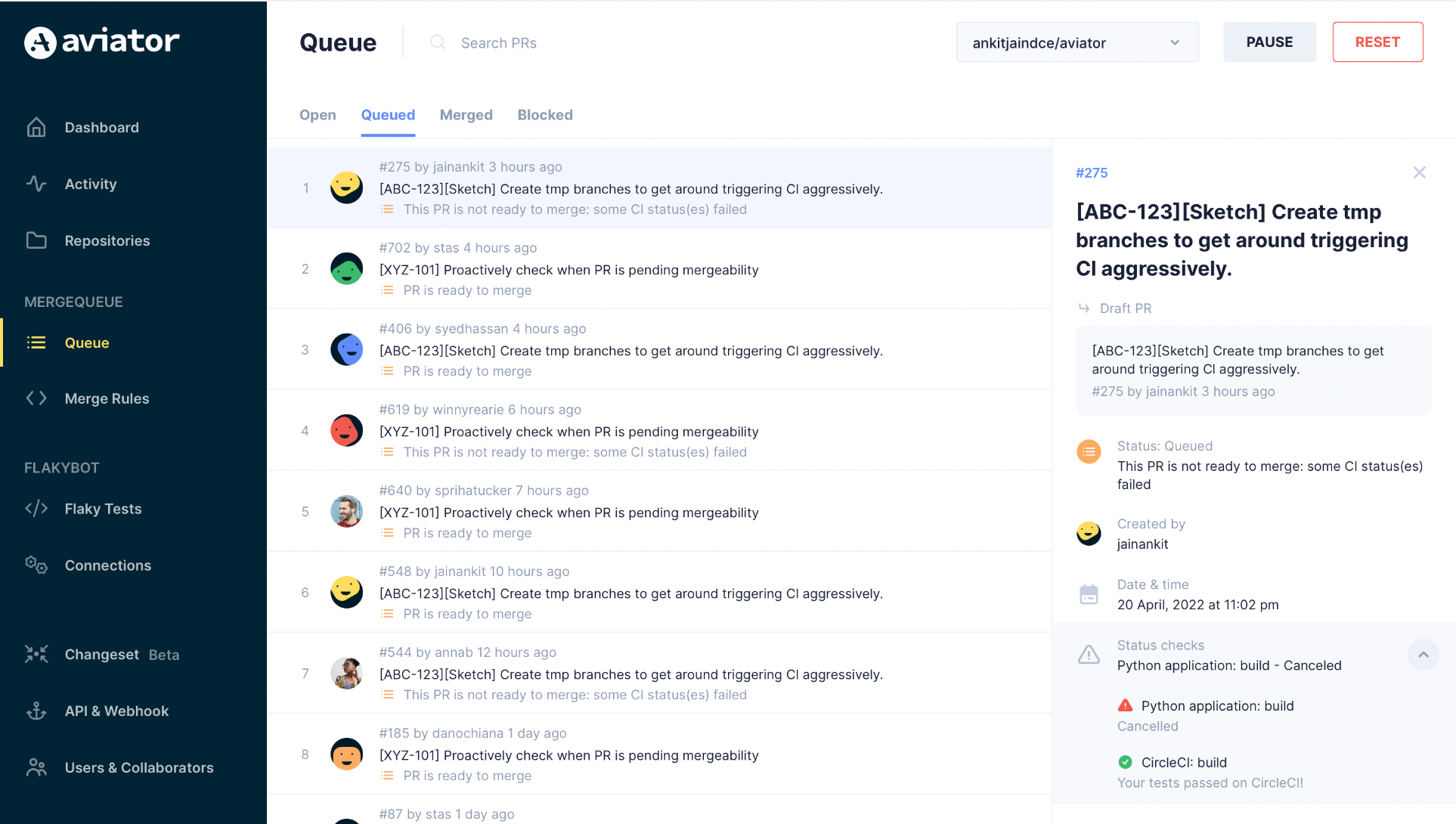
Whether you have a monorepo or polyrepo, manage Pull Requests with priority. Use our skip line or instant merge features to merge high priority fixes.
Combine two or more Pull Requests together to reduce your CI and merge more efficiently. Configurable batch sizes and wait times.
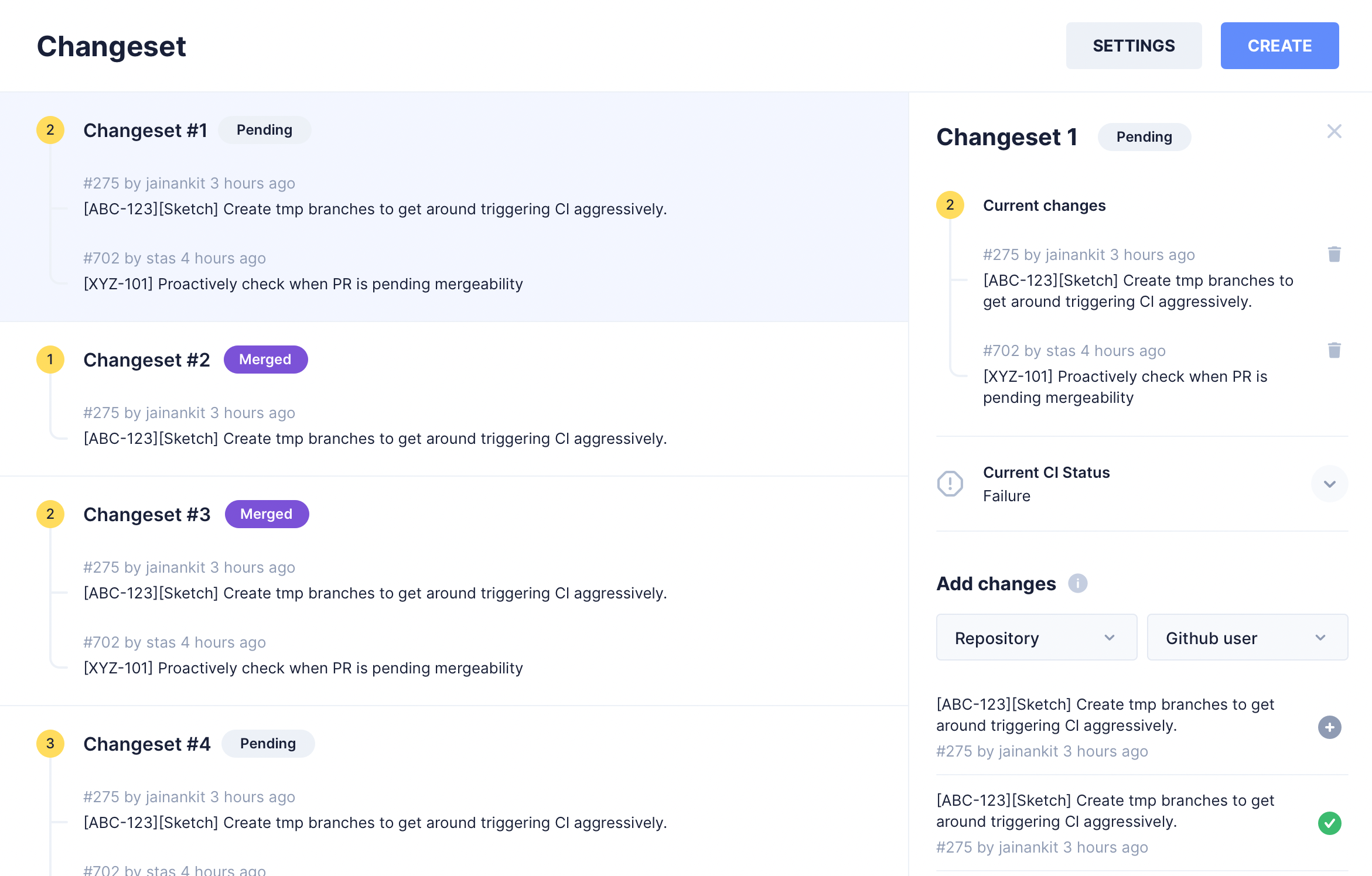
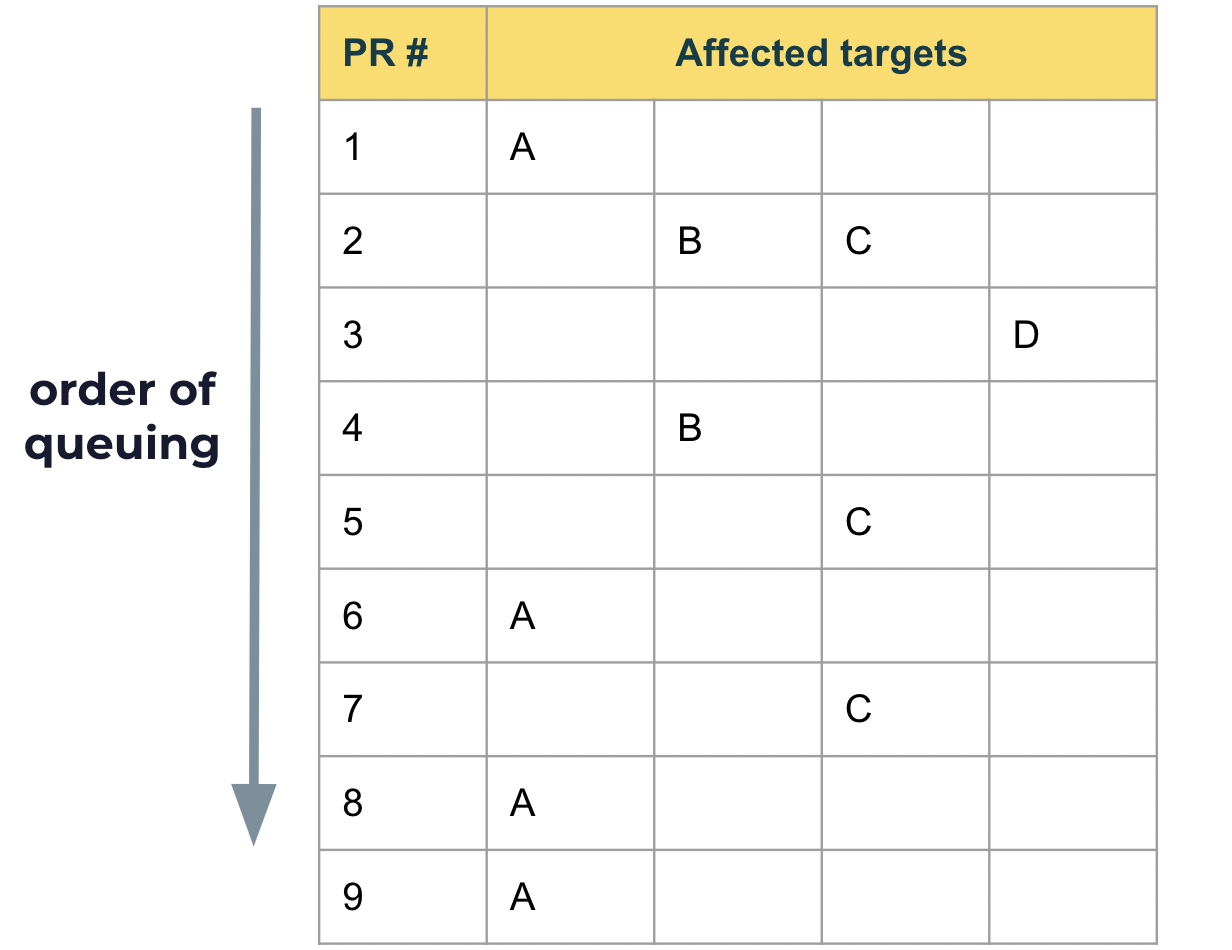
Automatically detect affected targets for Bazel based builds. We use this to create disjoint multi-queues to merge in parallel.
Use our CLI to manage stacked changes by automatically updating and synchronizing your changes. Merge your changes all together or one-by-one.
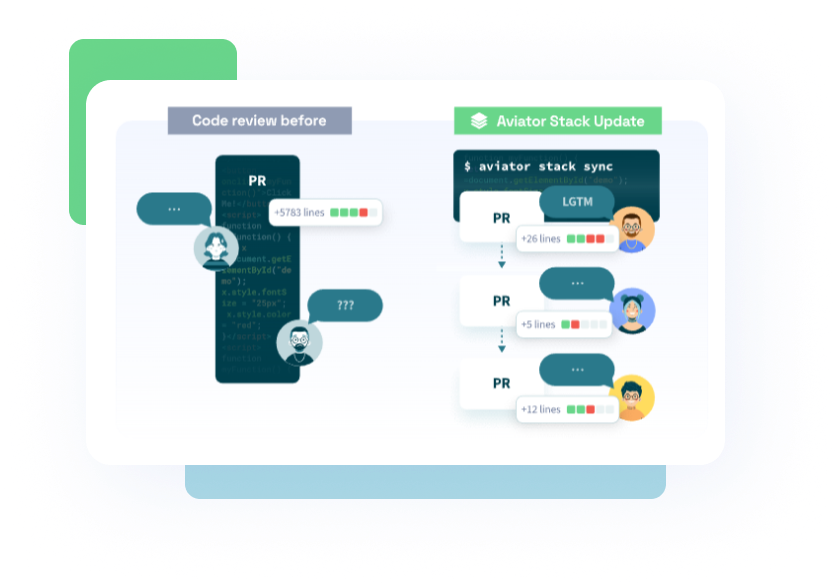
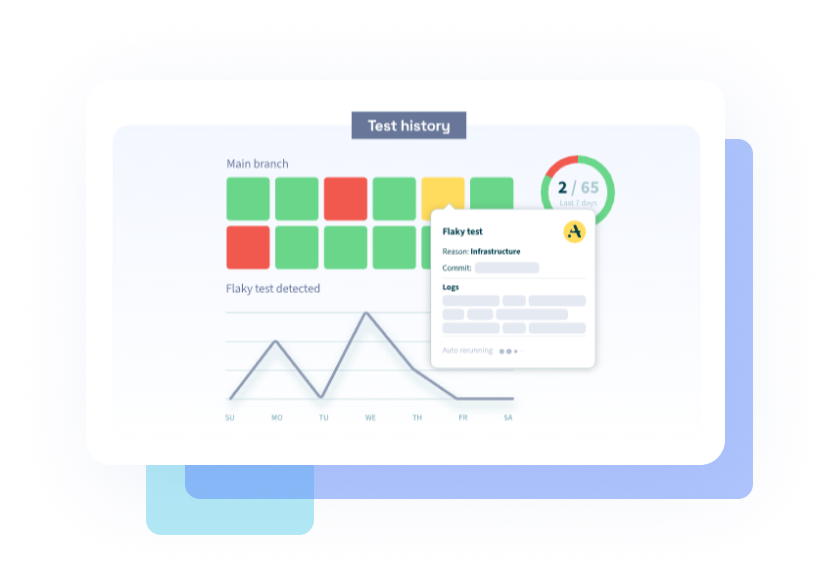
With our AI powered engine to detect and suppress flaky tests, merge changes stress-free. Our engine automatically highlights and ignores flaky tests.

SOC 2 is a deep-dive audit, delivered in a final report, based on AICPA’s existing Trust Services principles and criteria. We have completed a SOC 2 audit evaluated on information systems relevant to security, availability and confidentiality.
Need a copy? Email: sales@aviator.co
We offer on-premise installation of our platform for businesses in highly regulated industries or businesses running Github Enterprise on their own cloud provider. We use docker bundles with a single installation script to provision the platform.
Contacts: sales@aviator.co for details.
